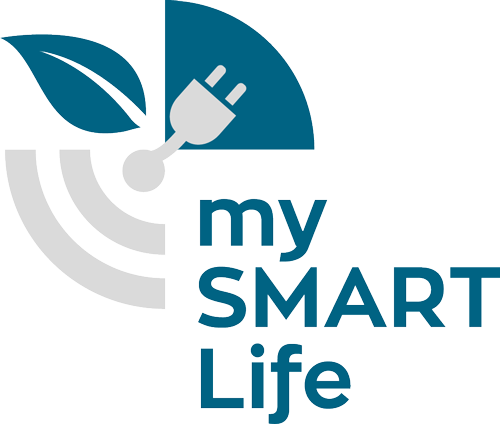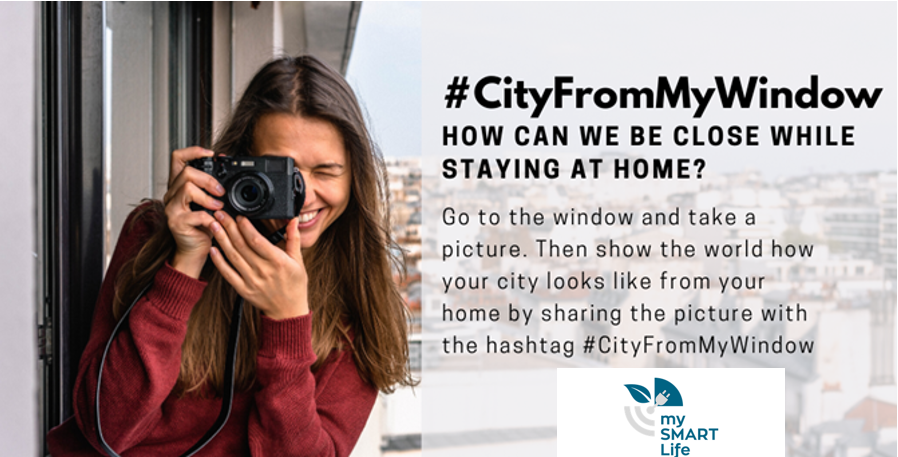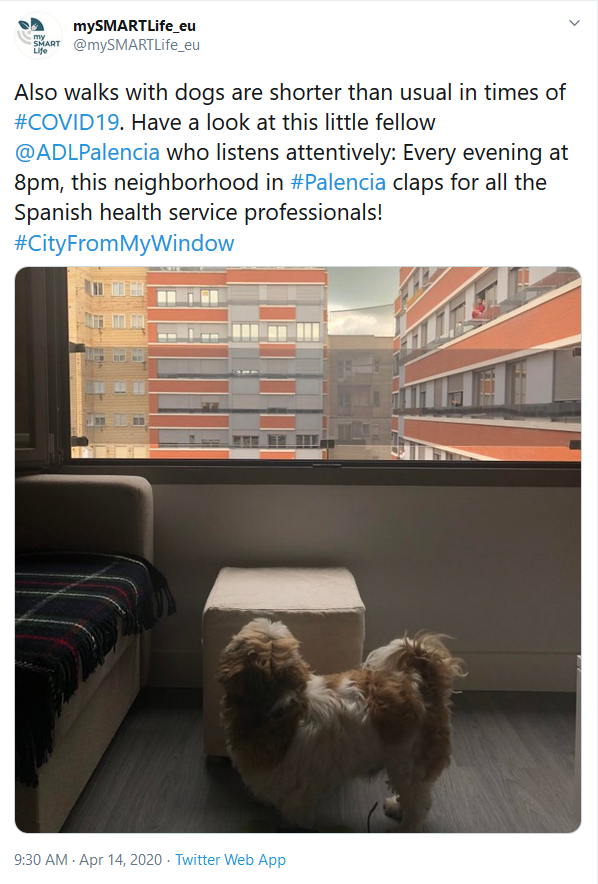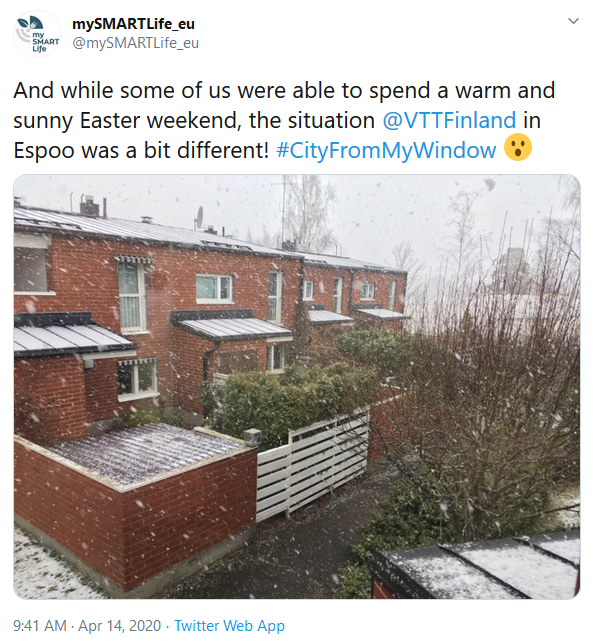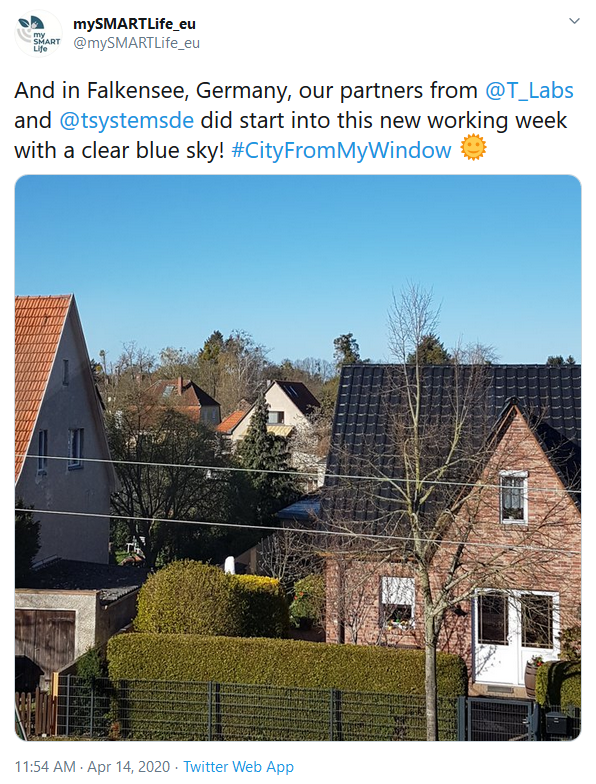When 2020 began, probably no one could have predicted how the first half of the year would look like. What we once thought impossible had suddenly become real. Borders were closed, air travel was banned, and strict curfews were imposed in several countries. And this with no less intention than saving human lives. But how did our mySMARTLife cities actually respond to the challenges posed by COVID-19? You will find some selected reactions here.
Nantes Metropole: EUR 1 million to support health innovations to fight COVID-19
Lighthouse City Nantes Metropole has launched an exceptional support fund to finance companies and laboratories that promote innovative projects to tackle COVID-19. This may concern treatments, protective equipment or any other project contributing to health, including innovations associating different sectors like health & digital, health & food, health & materials, generating tools, services or means to limit the spread of the virus, to support the deconfinement of the population or to act preventively by aiming to limit the risks.
This exceptional fund will make it possible to provide:
- Seed funding for the launch of clinical trials of biotechnology companies. An initial grant of €200,000 is given to Xenothera to launch clinical trials of a treatment for coronavirus infections;
- Co-financing of R&D projects of companies and collaborative research laboratories labelled by the competitiveness clusters, R&D projects of companies or public research projects;
- Co-financing of new health research chairs, research programs or clusters of "Health of the Future" theses on a particular health topic or combining several disciplines (like health & food, health & environment, health & digital), shared between several companies and a research laboratory;
- Contributions to the University of Nantes Foundation (of which Nantes Metropole is a founding member), which supports university projects that meet the general interest and solidarity, making it possible to finance innovative projects.
City of Hamburg: New working methods for city employees
And suddenly, most employees had to work from home - a circumstance that presented many employers with major challenges. To meet them, Hamburg’s office for IT and Digitisation has compiled a lot of important information via the portal "Working from Home", which makes it easier to get started with a home office.
"It's like someone flipped a switch. Enabling many employees to have a home office overnight is a challenge," says Jörn Riedel, CIO (Chief Information Officer) of the Hanseatic City. Together with Dataport and the IT managers in the authorities, he has a firm grip on the infrastructure. It's not a foregone conclusion that more and more employees will suddenly want to discover and use the opportunities offered by digitization. Not only do the capacities have to be created, the IT departments in the individual authorities also have to deal with numerous new applications for notebooks, VPN access or Zuvex (external access). An interim conclusion is that it has worked out well in view of the huge rush.
The way to the "office" currently leads for many via the so-called “VPN tunnel”. This allows 'normal' office work to be carried out just as securely outside the office as in the office. Before the pandemic, about 3,000 people did this every day at the same time - in the last few months, it was up to 12,000 people! The numbers of Zuvex accesses also show the great demand and jumped from 13,000 to 23,000 in April. As modern forms of cooperation are gradually becoming more and more established, the VPN dial-up options were increased from 5,000 to now 15,000 shortly before COVID-19. This was accompanied by a significant expansion of many background capacities. These days, about 20,000 video conferences with Skype for Business take place every week. The capacity for the good old telephone conferences has also been increased (from 300 to 500 simultaneously possible conferences).
City of Helsinki: New forms of education and support for the elders
Apart from the major changes in public services well known to everyone such as changing to remote schooling, the COVID-19 pandemic had an impact on how the city runs its nature education activities. Due to the pandemic, the nature trips that the city organizes had to be cancelled. How to provide knowledge and experiences to citizens under these new circumstances? One answer is to move online! A series of videos was produced taking the viewer to interesting nature locations in Helsinki such as the surprisingly urban habitat of the endangered Siberian flying squirrels.
There were also new services that were quickly established due to the pandemic. In Finland, people over 70 were instructed to stay at home to avoid the risk of infection. However, people would trouble following this instruction if they didn’t have help available to run necessary errands such as shopping for example. Thus, the Helsinki Helpline was launched as a collaboration between the city and the parishes of Helsinki to offer this kind of help for the elderly Helsinkians in late March. People working for other services in the city with less activity during the pandemic were relocated temporarily to the Helpline.
City of Bydgoszcz: An extraordinary Virtual Spring 2020
Bydgoszcz was the only Polish city that got nominated in this year’s competition edition of European Best Destinations 2020 in February 2020. This was one month before COVID-19 kicked in, stopping the touring activities and freezing tourism on the spot. As a response to it, Bydgoszcz’ City Information Centre started its telepresence immediately to offer virtual sightseeing tours throughout the city. Thanks to YouTube and Facebook, Bydgoszcz’ Information Centre, in collaboration with local guides, the City Culture Centre and local historians, began a series of virtual tours of the city, its history, magic places and stories that unravel unknown facts from Bydgoszcz. Not only Bydgoszcz’ citizens could take a walk, touring Mill Island, Granaries on the River Brda, the city centre, Water Tower, the old town, or Ostromecko Palace, just to name a few spots.
For the Virtual Spring 2020, the MCK Bydgoszcz City Culture Centre also went online – with lots of concerts, documentaries, commentaries and performances. Also, the Leon Wyczółkowski District Museum offered its touring format online to keep art close to Bydgoszcz’ citizens.
In principle, tightened hygiene measures have always been important to contain the spread of illnesses and pandemics. Who would know better than the Museum of Soap and History of Dirt. Therefore, also this museum brought its activities online – not only to entertain people but moreover to educate them how to keep their hands properly clean!
SCC01 Social Media Campaigns: #SmartCitiesHelp and #CityFromMyWindow
Social media do not only offer a place where conspiracy theorists can let off steam. When used correctly, it can moreover convey a feeling of solidarity. This was the key message of two social media campaigns that have been launched in cooperation with the Lighthouse Smart Cities projects as a response to the outbreak of COVID-19 in spring 2020. While the campaign #SmartCitiesHelp demonstrated how European Smart Cities reacted to COVID-19, the campaign #CitiesFromMyWindow aimed at creating a feeling of togetherness despite social distancing. Due to it, we got to know our cities from a completely different side and got a range of nice and unusual pictures of our smart cities as you can see below.
